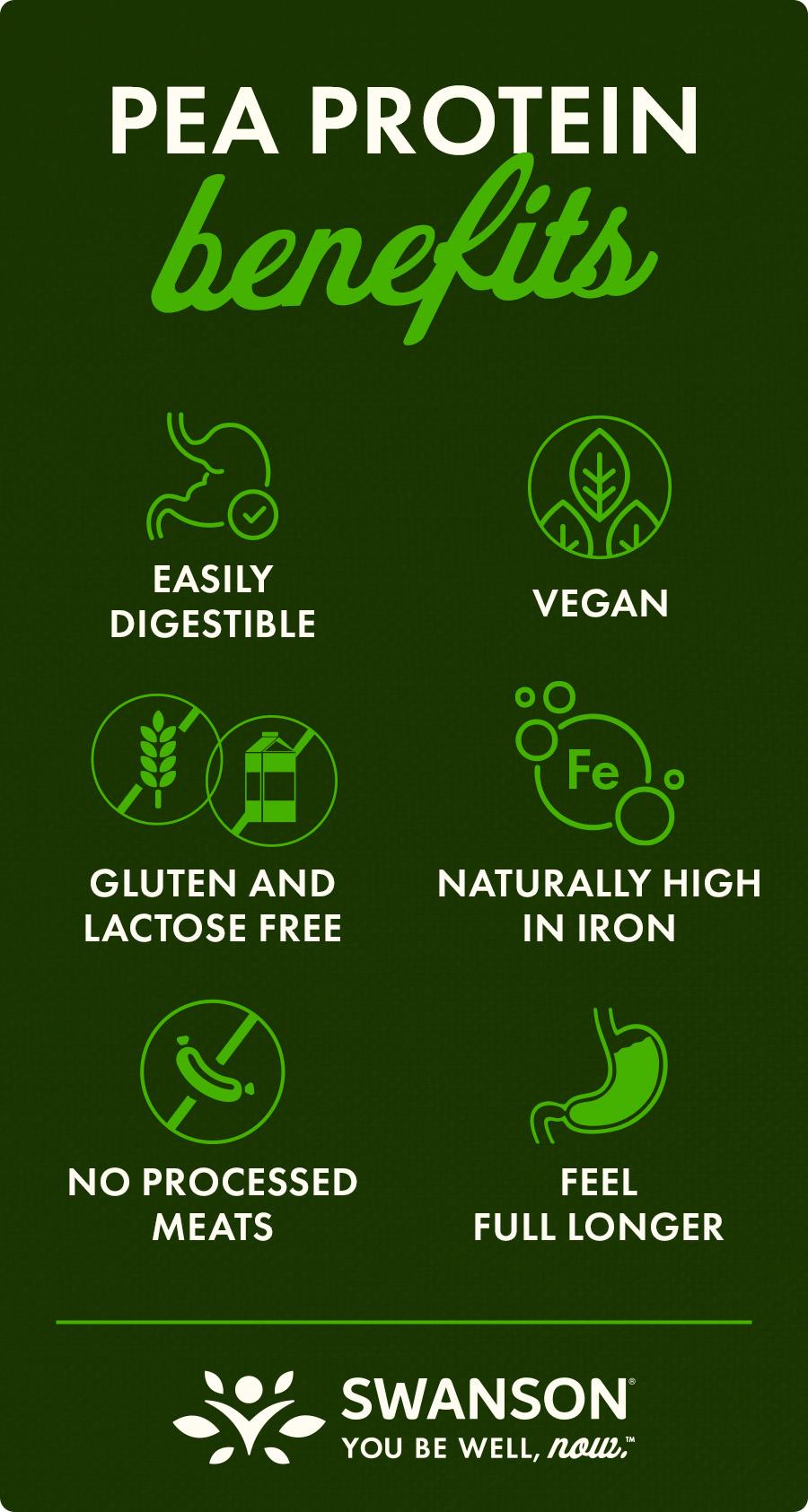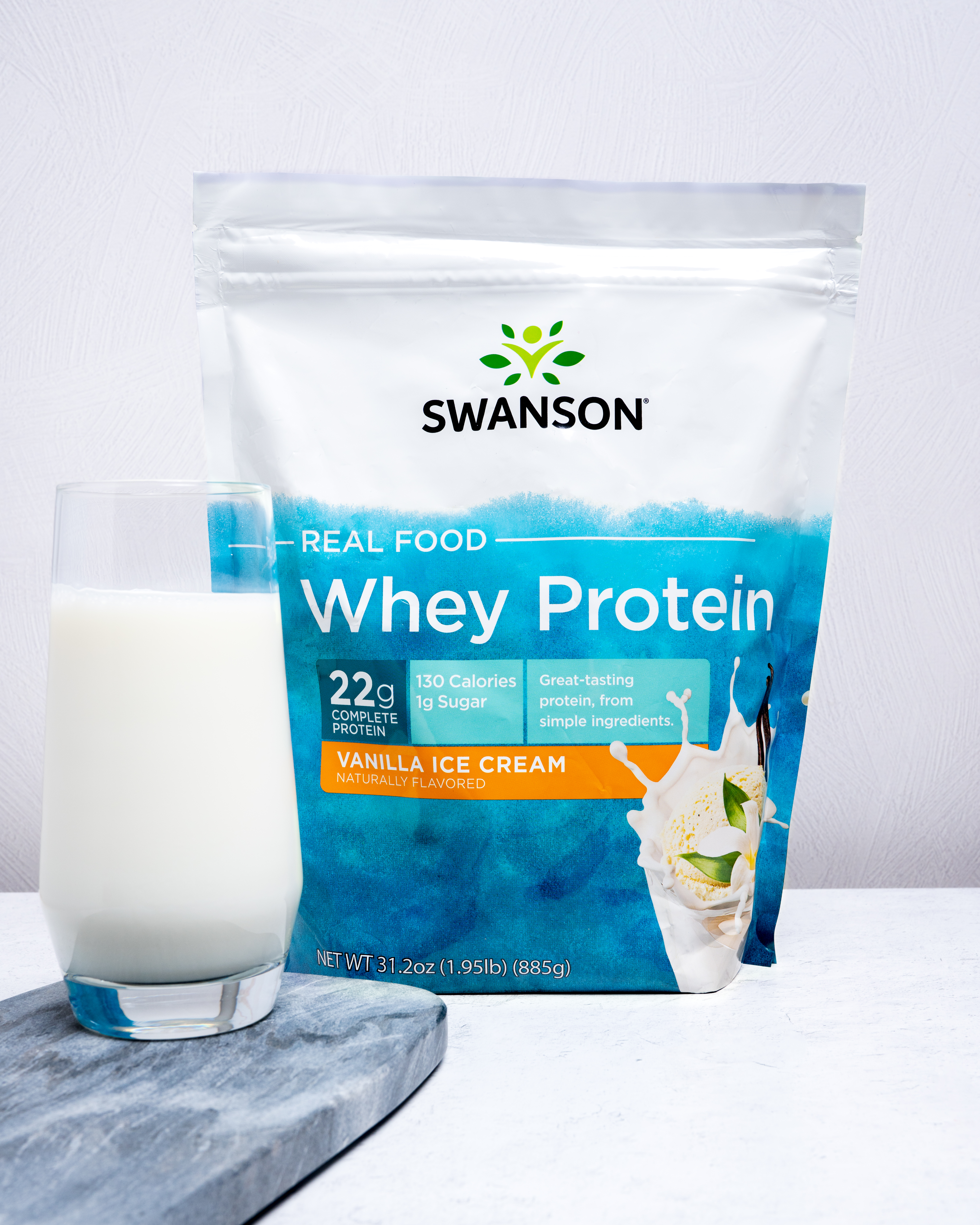When Mom said, “Eat your vegetables,” she knew what she was talking about. Peas, like many other foods, contain proteins, one of the essential building blocks of our bodies. Proteins do much of the work in our cells; our tissues and organs rely on them to function and even for structure.1 And as we age, our bodies need extra help to synthesize muscle. This makes proteins a vital part of our diets and a common supplement choice, especially for older adults.
One particular type of protein that’s earned a lot of positive attention lately is pea protein.
Pea Protein Benefits

Made from your garden-variety pea, these proteins have all of the essential amino acids that your body can’t produce on its own,2 though one (methionine) is at lower levels. Because of this, they can help fill dietary gaps and support other health benefits. Here are a few other perks of pea-based supplements:
- Easily digestible — with no common sources of digestive distress2
- Vegan — a great choice for those who prefer to avoid animal products in their diet2
- Gluten and lactose free — an easy option for people with these allergies or sensitivities2
- Naturally high in iron3
- Sidesteps potential risk factors associated with red and processed meats2,4
- May help you feel fuller longer after eating2
As a protein source, these supplements contain a better balance of essential amino acids than proteins derived from hemp seed, rice and most other grains.4 Despite containing all 9 essential amino acids, their methionine content is a bit too low to be truly considered a “complete” source of protein.5
Pea Protein vs. Whey Protein
Whey protein has enjoyed great popularity as a dietary supplement, and with good reason. Both pea and whey proteins are an excellent source of protein, versatile, and easy to mix with other foods or drinks. Both can help you build muscle. Even so, whey protein (which is derived from cow’s milk) is not for everyone. Here’s why:
- Plant vs. animal — Pea protein is plant based, making it an excellent choice for vegetarians and vegans2
- Non-dairy product — Protein derived from peas sidestep concerns for those who are lactose intolerant or simply prefer to avoid milk products2
- Flavor — There’s a mildly raw and earthy flavor, versus the bland and milky taste of whey protein
- Texture — It is commonly described as being smooth and creamy. Whey protein by contrast is a thin, milk-like liquid
- Processing — Mechanical means can be used to separate pea proteins, while whey protein is subjected to chemical separation
- Gluten — Both pea and whey proteins themselves contain no gluten. However, gluten is sometimes added to whey protein powders6
Pea protein can help you build muscle, especially when paired with resistance training. However, it doesn’t offer as much methionine as is found in its whey counterpart. Because of this, whey protein may be the optimal choice especially for those who can tolerate milk products and are looking to build muscle.5 For those with dietary restrictions, pea protein is an excellent alternative.
The Side Effects of Pea Protein
Pea protein is generally well tolerated and easy on the stomach. It is free of all the most common allergens.5 Pea protein should not be used by those who have a demonstrated allergy to peas.7 As always, speak with your doctor before taking any new supplements.
Who Should Take Pea Protein?
Because of its many benefits and very limited side effects, pea protein is especially well suited to those who:
- Are vegan or vegetarian
- Have common food allergies
- Have digestive issues
- Want a high-protein option
- Prefer a creamier texture
If you’re looking to supplement your protein intake while respecting dietary restrictions, pea protein may be an excellent choice. By providing proteins that your own body cannot generate, it could help you maintain a healthy body and meet your nutrition goals.
You be well, now.
Swanson
*These statements have not been evaluated by the Food and Drug Administration. These products are not intended to diagnose, treat, cure, or prevent any disease.

Sources
- What are Proteins and What Do They Do? Read source
- The Current Situation of Pea Protein and Its Application in the Food Industry. Read source
- Iron Rich Foods. Read source
- Pea Protein is Everywhere, Is it Healthy? Read source
- Pea Protein vs Whey: Which is Better? Read source
- Is Whey Gluten-Free? Read source
- Pea Protein Food Allergy Labeling. Read source




